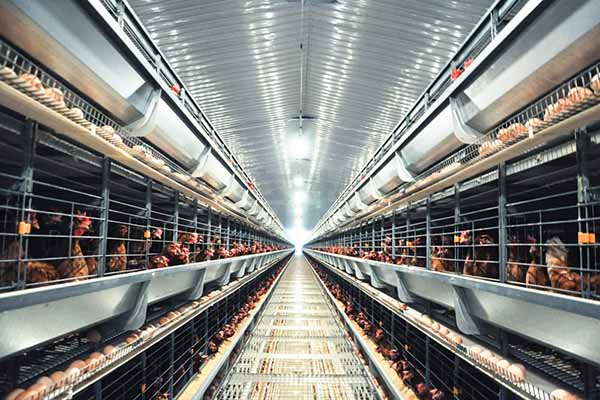How to Start a Broiler Chicken Farm: A Step-by-Step Guide
Time : 2025-04-19
Starting a broiler chicken farm can be an exciting venture into the world of agriculture. But where do you begin? Don’t worry, I’ve got you covered with a step-by-step guide to help you kick off your broiler chicken farming journey. Let’s dive in!
Step 1: Research and Planning
Before you even think about laying down any money, it’s crucial to do your homework. Here’s what you need to know:
1.1 Market Research
Find out if there’s a demand for broiler chickens in your area. Talk to local restaurants, supermarkets, and wholesalers to gauge their interest in buying your product.
1.2 Understand the Industry
Learn about the broiler chicken industry, including the current market trends, pricing, and competition. It’s important to know what you’re getting into.
1.3 Create a Business Plan
A well-thought-out business plan will guide you through the startup process and serve as a roadmap for the future. Include sections on your business structure, marketing strategy, financial projections, and operational plan.
Step 2: Choose the Right Location
The location of your broiler chicken farm is critical to its success. Here are some factors to consider:
2.1 Proximity to Markets
Being close to your target markets can significantly reduce transportation costs and increase your profit margins.
2.2 Zoning Laws
Check local zoning laws to ensure that broiler chicken farming is allowed in your chosen area.
2.3 Access to Utilities
A reliable source of electricity, water, and waste disposal are essential for running a farm.
Step 3: Building the Chicken House
The chicken house is where your broilers will live, grow, and be processed. Here’s what you need to consider:
3.1 Design
Your chicken house should be designed to maximize efficiency and comfort for the birds. Consider factors like ventilation, temperature control, and space for the chickens to move around.
3.2 Construction
Hire professionals to build the chicken house. Ensure it’s sturdy, well-insulated, and equipped with the necessary infrastructure.
Step 4: Get Your Birds
Once your chicken house is ready, it’s time to get your broiler chickens. Here’s how to do it:
4.1 Choose the Right Breed
Select a breed that is well-suited to your climate, market demand, and production goals. Common broiler breeds include Cobb, Ross, and Hubbard.
4.2 Purchase Your Chickens
Buy your chickens from a reputable hatchery. Ensure they are healthy and have been vaccinated against common diseases.
4.3 Transportation
Transport your chickens carefully to minimize stress and ensure their health.
Step 5: Feed and Water
Proper nutrition and hydration are key to healthy broiler chickens:
5.1 Feed
Broiler chickens have specific dietary needs. Invest in high-quality feed that meets their nutritional requirements.
5.2 Water
Provide clean, fresh water at all times. Chickens require plenty of water, especially during hot weather.
Step 6: Health Management
Maintaining good health is essential for your broiler chickens:
6.1 Vaccinations
Vaccinate your chickens against common diseases to prevent outbreaks.
6.2 Monitoring
Regularly check your chickens for signs of illness. Early detection and treatment can save you money and prevent a loss of stock.
6.3 Waste Management
Implement a waste management system to handle manure and other waste products. Proper disposal is crucial for maintaining hygiene and reducing the risk of disease.
Step 7: Marketing and Sales
Once your broiler chickens are ready for market, it’s time to sell them:
7.1 Build Relationships
Develop relationships with local buyers and wholesalers. Networking is key to creating a steady market for your product.
7.2 Branding
Create a brand for your farm and chickens. A strong brand can help you stand out in the market.
7.3 Marketing
Use various marketing strategies, such as social media, flyers, and direct sales, to promote your product.
Step 8: Financial Management
Managing your finances is crucial for the success of your broiler chicken farm:
8.1 Budgeting
Create a detailed budget that includes all your startup costs, operational expenses, and revenue projections.
8.2 Record Keeping
Keep accurate records of all your financial transactions. This will help you monitor your expenses and make informed decisions.
8.3 Financial Planning
Plan for the future by setting aside money for expansion, emergencies, and retirement.
Final Thoughts
Starting a broiler chicken farm is a challenging but rewarding endeavor. By following these steps and staying committed to your goals, you can build a successful farm that produces high-quality broiler chickens. Remember to always stay informed about the industry and be willing to adapt to changing market conditions.












